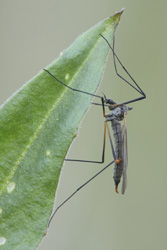Innovative anti-malaria control
Malaria is a parasite disease caused by Plasmodium falciparum and transmitted mainly through Anopheline mosquitoes acting as vectors. The emergence of parasite resistance to existing anti-malaria drugs has prompted scientists into finding novel control measures. Based on this, African and European researchers of the EU-funded MALVECBLOK project investigated how mosquito reproduction and immunity could affect malaria transmission. The idea was to identify molecular targets that could help them shape the mosquito populations in malaria endemic regions, thereby blocking parasite transmission. To this end, the consortium studied the molecular basis of mosquito reproductive biology with particular emphasis on characterising the composition of the mating plug. By genetically engineering infertile mosquitos depleted of sperm, scientists evaluated the post-mating responses and reproductive success in the malaria mosquitoes. They discovered a connection between responses of females to mating and to blood feeding that was associated with the activation of certain genes. Work on the molecular mechanisms that shape mosquito immune status revealed that the anti-parasitic gene telomerase protein component 1 (TEP1) is activated after mating, among other immune-related genes. Results showed that the TEP1/ leucine-rich repeat (LRR) complex mediated the defence against bacteria and malaria parasites. An equally important determinant of the mosquito anti-parasite action was the genetic diversity of P. falciparum, which enabled parasites to survive the vector immune responses. Genotyping of the mosquito gene TEP1 showed that the variant that confers resistance to Plasmodium is distributed in certain parts of Africa. This finding could infer important information regarding disease spread. Transmission of malaria was also found to correlate with the presence of certain microbiota like enterobacteria in mosquito vectors. This constitutes another region-specific factor that may contribute to malaria transmission in Africa. The MALVECBLOK initiative elucidated the molecular events involved in reproduction and immunity of the mosquito, and identified environmental factors that may influence disease spread. Taken together, the project findings provide new concepts for innovative vector measures to control malaria transmission.







